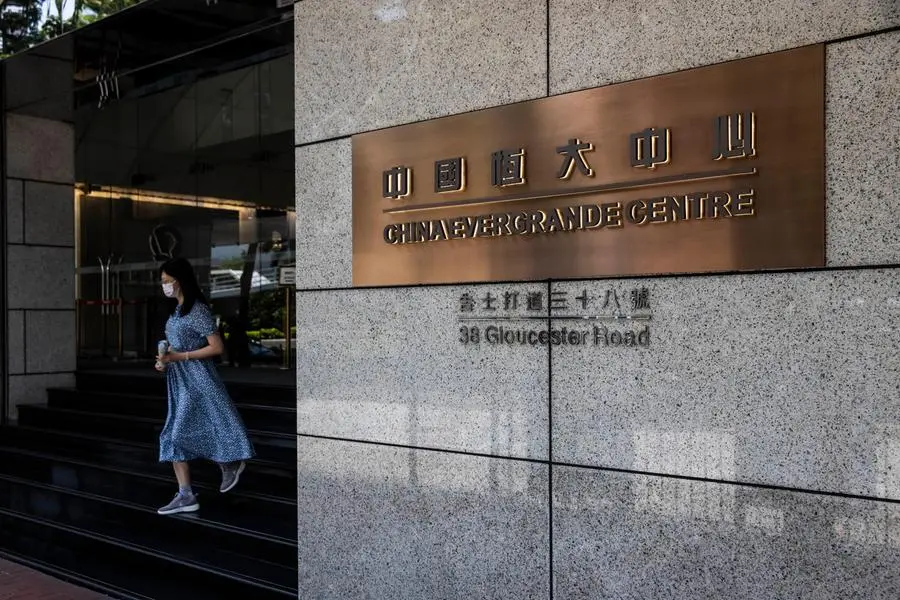PHOTO
Heavily indebted Chinese property giant Evergrande has until late January to put together a restructuring plan, a Hong Kong court ruled Monday, extending a deadline that could lead to its liquidation.
Once China's biggest real estate developer, Evergrande has reported more than $300 billion in liabilities and its troubles have become a symbol of the nation's years-long property crisis.
A creditor last year filed a winding-up petition in Hong Kong against China Evergrande Group -- which would begin the process of liquidation -- but the case has dragged on while parties tried to broker a deal out of court.
Judge Linda Chan on Monday adjourned the case until January 29, a reprieve after earlier saying December 4 would be Evergrande's deadline before appointing independent liquidators from accounting firm KPMG.
Chan urged Evergrande on Monday to have "more direct discussion with relevant authorities to confirm (if their restructuring plan) is doable".
"What does the company plan to do in the next... weeks? Now we only have a general idea," Chan questioned Evergrande's lawyers.
She emphasised "transparency is also key", asking whether the Chinese company planned to issue announcements on restructuring updates.
"It's not just about creditors in court," Chan said.
The demise of Evergrande, which first defaulted on a payment in 2021 and declared bankruptcy in the United States this year, has been closely watched as it was once such a pillar of China's economy.
China's construction and property sector once accounted for around a quarter of its GDP.
But Chinese President Xi Jinping deemed the debt accrued by Evergrande and other property firms was an unacceptable risk for China's financial system and overall economic health.
Authorities have gradually tightened developers' access to credit since 2020, and a wave of defaults has followed.
By the end of June, Evergrande estimated it had debts of $328 billion -- equivalent to a little less than the GDP of pre-pandemic finance hub Hong Kong.
- 'Reluctantly not opposed' -
To address creditors, the property behemoth had in March offered them a choice to swap their debt into new notes issued by the company and equities in two subsidiaries, Evergrande Property Services Group and Evergrande New Energy Vehicle Group.
Negotiations stalled in September when company chair Xu Jiayin was "subject to mandatory measures" from Chinese authorities on suspicion of "crimes".
The company said the same month that it could not issue new debt because its subsidiary in China, Hengda Real Estate Group, was being investigated.
Lawyer Jose-Antonio Maurellet said Monday that due to "difficulties" related to "certain events", Evergrande was not able to issue bonds or shares.
The company has had to "rejig or recast the proposal" since the October hearing, he said, adding that he was "not sure" about the state of the two subsidiaries' finances.
"But they are trading so they have value," said Maurellet.
He said the composition of Evergrande's restructuring plan "is similar to what is envisioned under the original scheme" but will have "further refinement".
Lawyers for Top Shine Global, the creditor who filed the petition, said they were "instructed not to present any argument" against another adjournment.
"So far as adjournment is concerned, we are reluctantly not opposing it," said a lawyer in court.
According to Bloomberg, other creditors were not as pleased by the postponement.
"The petitioner changed its position and didn't push to wind up the company, which is a surprise to us," Neil McDonald, a partner at law firm Kirkland & Ellis LLP, legal adviser to an ad-hoc group of creditors, told Bloomberg.
He added that the creditor group "has firmly rejected" the latest proposal Evergrande put forward to the court.
On Monday during the time of the hearing, Evergrande's shares were up more than 13 percent on Hong Kong's stock exchange.
Hong Kong has a common law legal system that is distinct from mainland China, and is favoured by some offshore creditors as a venue to seek the liquidation of failing Chinese builders.
It remains unclear if a winding-up order issued by a Hong Kong court can or will be enforced in the mainland.





















